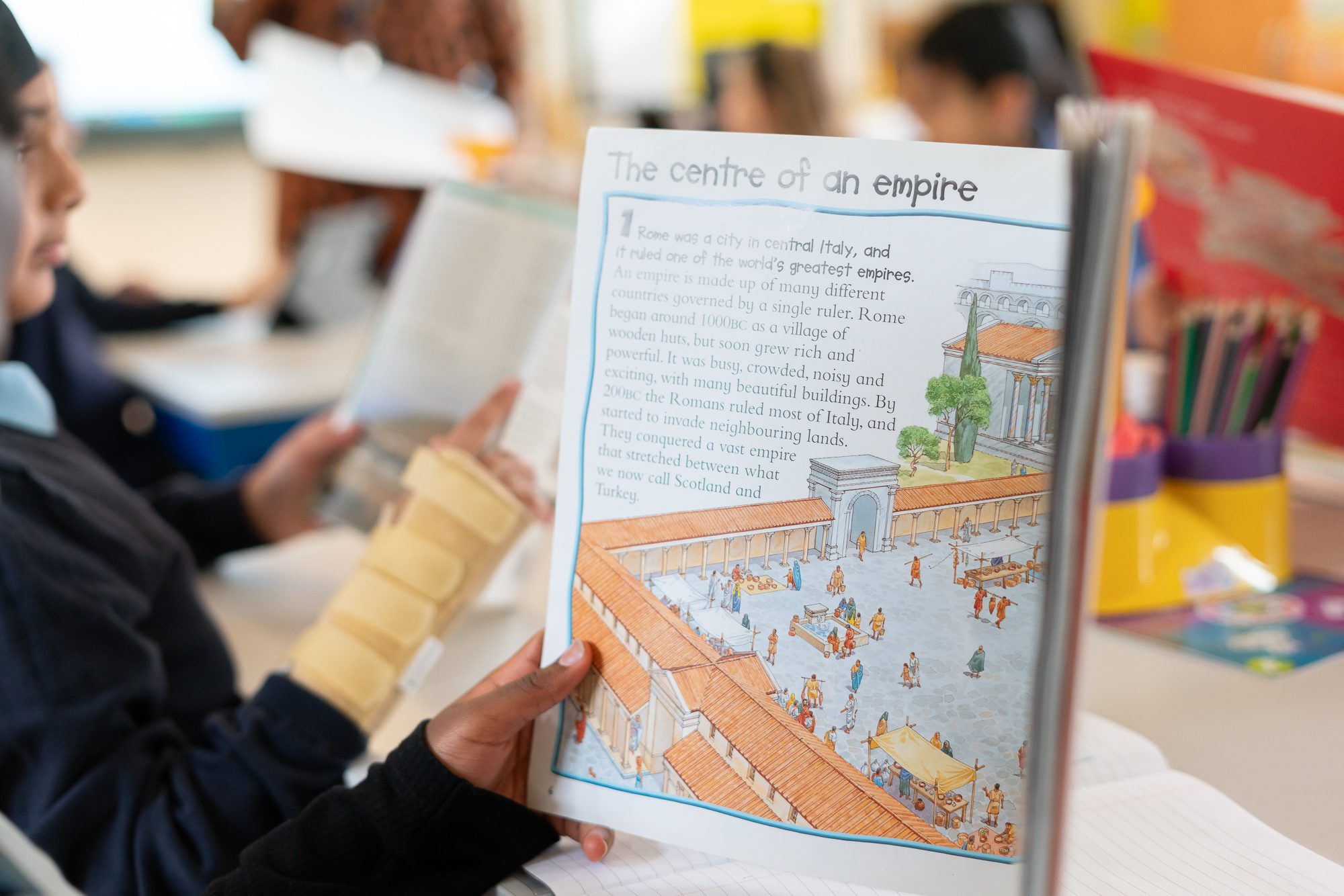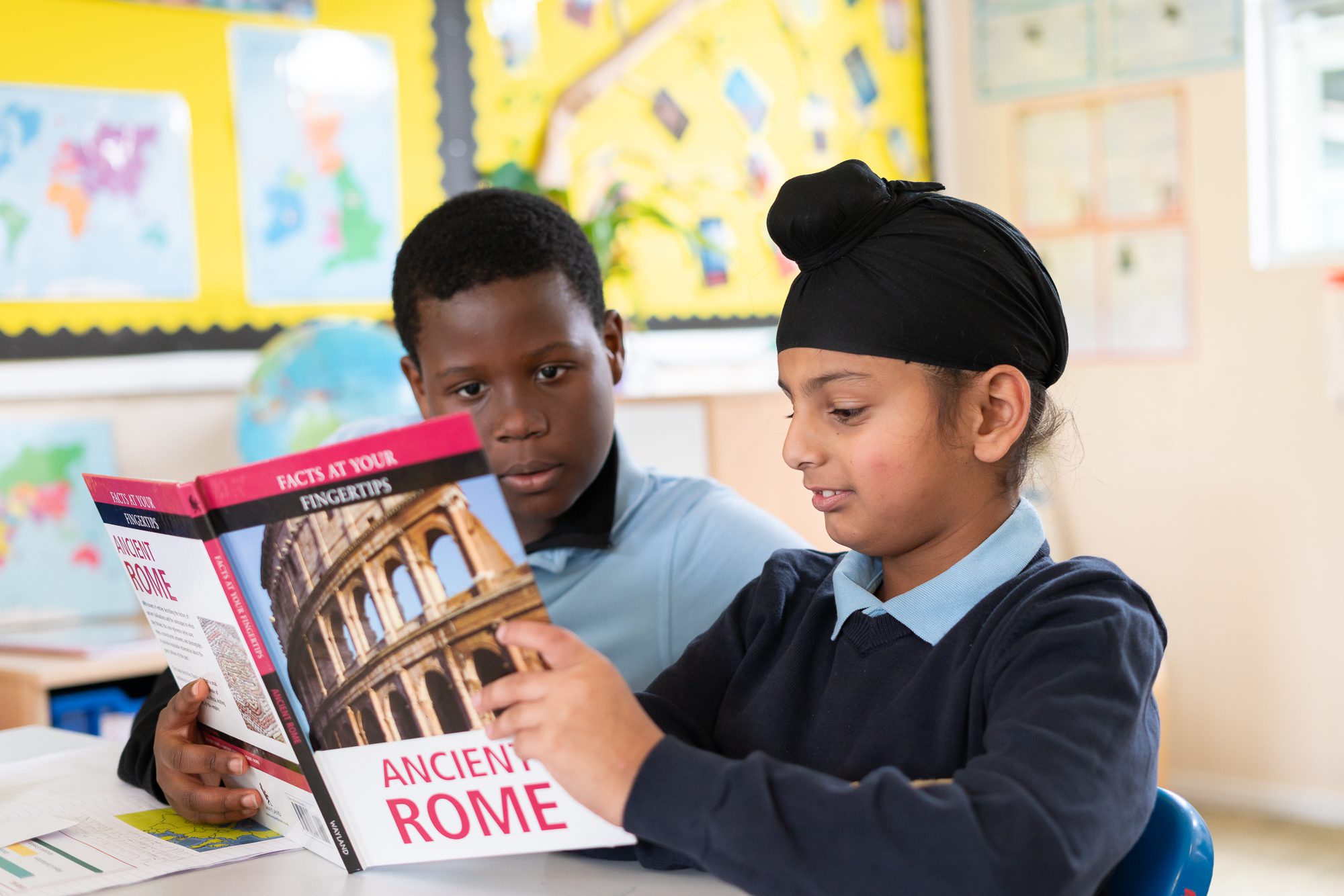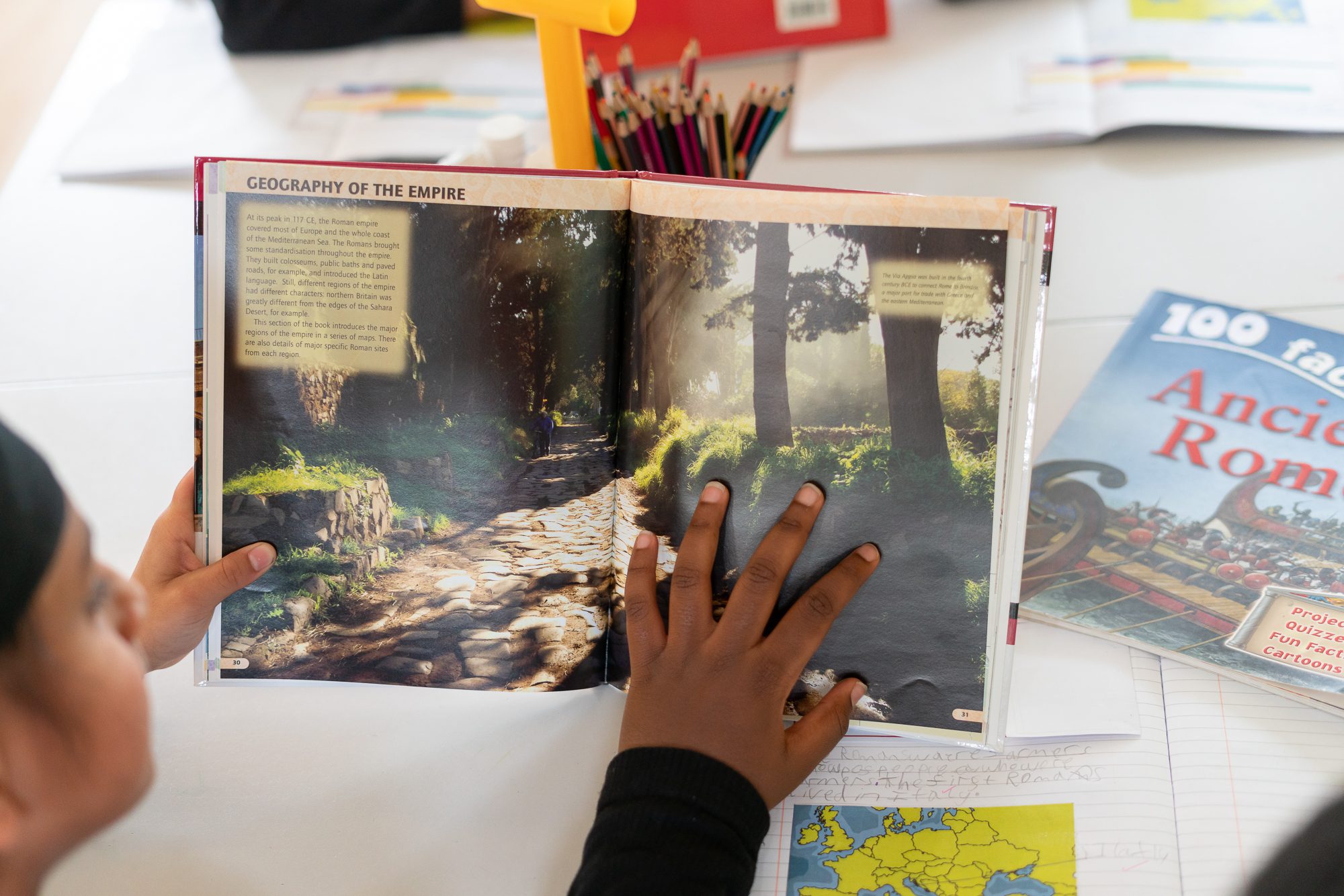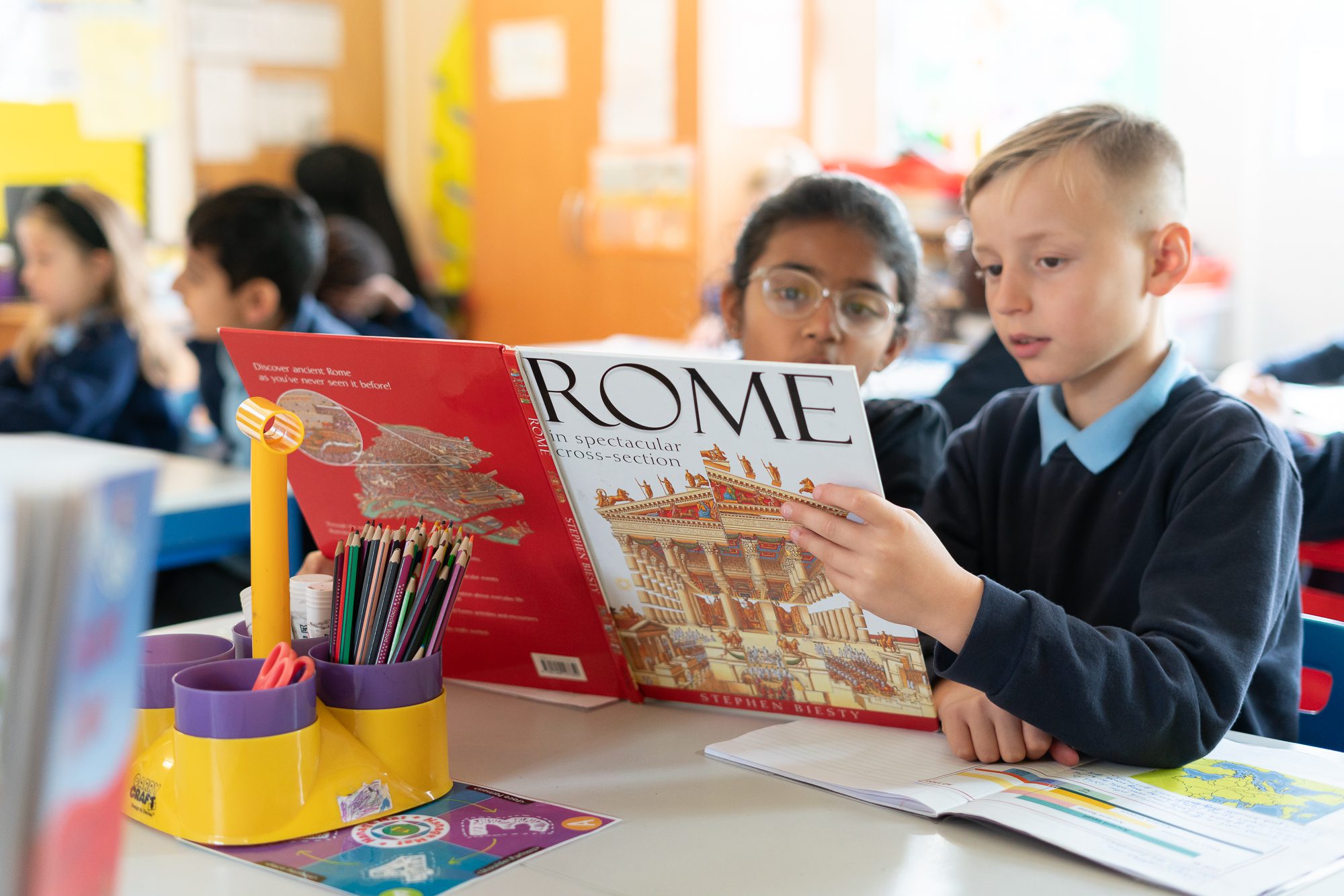History Subject Leader: Mrs S Cole
Intent
At Rosherville, we believe that a well-rounded History curriculum will allow children to gain a coherent knowledge and understanding of Britain’s past and that of the wider world.
We aim to explore all aspects of the past through a range of sources allowing children to understand that events from the past can have an impact on events in the present and future. We ensure that children understand that the perspectives from the past may influence our understanding of events.
The National Curriculum for history aims to ensure that all pupils:
- know and understand the history of these islands as a coherent, chronological narrative, from the earliest times to the present day: how people’s lives have shaped this nation and how Britain has influenced and been influenced by the wider world
- know and understand significant aspects of the history of the wider world: the nature of ancient civilisations; the expansion and dissolution of empires; characteristic features of past non-European societies; achievements and follies of mankind
- gain and deploy a historically grounded understanding of abstract terms such as ‘empire’, ‘civilisation’, ‘parliament’ and ‘peasantry’ understand historical concepts such as continuity and change, cause and consequence, similarity, difference and significance, and use them to make
connections, draw contrasts, analyse trends, frame historically valid questions and create their own structured accounts, including written narratives and analyses - understand the methods of historical enquiry, including how evidence is used rigorously to make historical claims, and discern how and why contrasting arguments and interpretations of the past have been constructed
- gain historical perspective by placing their growing knowledge into different contexts, understanding the connections between local, regional, national and international history; between cultural, economic, military, political, religious and social history; and between short-and long-term timescales



Implementation
We have carefully designed our History curriculum so that children gain this knowledge as they progress through the school. In addition to this, we recognise the important role that History plays in preparing our children with skills that they can use for life, raising their aspirations, understanding how to be a good and responsible citizen, understanding change and societal development and a context in which to understand themselves and others. This is extremely important for children at Rosherville in allowing them access to a much wider world.
History is embedded in our topic-based approach to learning. Teachers plan sequences of lessons across the unit that will build on and develop the children’s knowledge and skills. As they progress through the key stages, they will demonstrate growing confidence and accuracy when using historical vocabularies, such as monarchy, explorer and artefact. This is further helped by Knowledge Organisers that each teacher creates for each topic.
Impact
Our curriculum provides children with opportunities to ask perceptive questions, think critically, weigh evidence, sift arguments, and develop perspective and judgement. Through the teaching of History, children will understand the complexity of people’s lives, the process of change, the diversity of societies and relationships between different groups, as well as their own identity and the challenges of their time. We believe that teaching History in this way is important in broadening children’s horizons, challenging preconceived ideas and developing life skills in order to prepare them for high school and beyond. As you can see from the History Skills overview, skills progress throughout the whole school.
The children will continue to develop a chronologically secure knowledge and understanding of British, local and world history, establishing clear narratives within and across the periods they study. This chronology, or sequence of events, will be referred to throughout both stages so that children become secure in their understanding of important historical events and eras. It will also enable them to begin to identify trends over time and develop the appropriate use of historical terms such as ancient and civilisation. The explicit mapping and rigorous teaching of vocabulary ensure that children can gain and deploy a historically grounded understanding of abstract terms such as ‘empire’ or ‘parliament’.

History in Each Stage
In KS1, pupils will be able to describe the similarities and differences between the past and present. Pupils will be able to confidently order significant historical events and recall dates of important celebrations and festivals.
Pupils in KS2 will be able to make connections between historical periods describe how significant events have influenced the world and explain the cause and consequences of people who were in power during specific eras.
History Curriculum Documents
History Progression
Carefully selected skills are chosen to best match each unit of knowledge and progress year after year. Opportunities to practise and embed skills are planned so that they are revisited and refined over time. The knowledge and skills that children will develop throughout each history topic are mapped across each year group and across the school to ensure progression.
SEND Information
SEND and disadvantaged children are given the required support within history lessons to access all national curriculum objectives.

